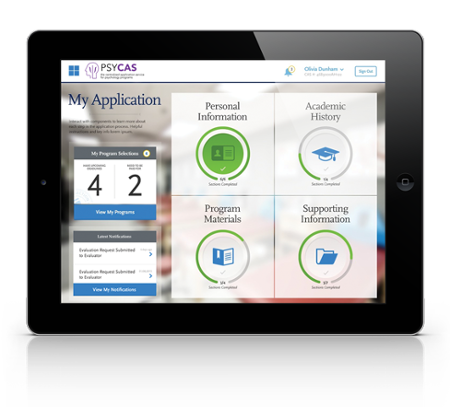Palo Alto University Explains Why They Joined the Centralized Application Service for Psychology Programs
The list of institutions participating in PSYCAS, the centralized application service (CAS) for candidates in master’s and doctoral psychology programs, has quickly grown from its original four partners to thirteen institutions across the United States in just a year and a half. The benefits to participating in a CAS are clear for both applicants and the admissions officers who process their applications, but we wanted to explore why PSYCAS in particular has had such great success in the short time since it was launched by the APA. To do so, we reached out to Deanna Berger, Assistant Director of Admissions at Palo Alto University (PAU), one of the recent additions to PSYCAS.

PAU is a private, nonprofit educational institution that was founded in 1975 as the Pacific Graduate School of Psychology (PGSP), an independent, professional school. As their website explains, PAU is “dedicated to education with an emphasis in the behavioral and social sciences; to promoting future innovators and leaders for the benefit of society; to generating knowledge through research and scholarship of the highest level; and to providing services to the community informed by science and scholarship.”
Read on for what Deanna shared about why this university chose to join PSYCAS and what other psychology programs should consider when deciding if a CAS is right for them.
Liaison International (LI): Thanks for your time, Deanna, and for providing some insight into what CAS can do for programs like yours. To start, what inspired PAU to consider a CAS and to join PSYCAS specifically?
Deanna Berger (DB): PAU had been considering the idea of implementing a new application management system, but both the selection and implementation processes can be quite lengthy. We knew we needed a solution that would help to reduce the backlog in our application processing, which was all being done in-house. When we learned that the APA had partnered with Liaison to offer PSYCAS, we were convinced it was the logical solution for us, as we have all graduate psychology/counseling programs and recognized that Liaison has extensive experience offering the range of application processing services that we were seeking.
LI: What results are PAU looking to achieve with PSYCAS? Is there a particular number or point you’ll reach that will help you determine that this service is the best fit for your needs?
DB: We will be tracking the success through the whole admissions funnel, and through the response times of our admissions staff. We hope to see an increase in applications for all graduate programs, and hopefully growth in our two master’s programs in counseling and psychology. We also want to continue improving our customer service from our admissions staff—with the backlog of application materials handled, we will be tracking much more closely our initial response time to prospective students, with our goal being within 24 hours, as well as response times for prospective students at all stages in the admissions process.
We regularly compare our admissions funnel numbers to prior years, and we’ll continue to do so. We also track response times to new prospective students through our current email ticketing system, and we intend to continue to do so with the tools that EMP and WebAdMIT provide.
LI: What advice do you have for other graduate and doctoral psychology programs considering a centralized application service?
DB: It essentially eliminates the application processing backlog and enables admissions counselors to do just that—counsel prospective students with information about programs, help through the admissions process and provide other information that prospective students seek when doing their graduate program search. Bringing on an application management system will enable us to provide the kind of strong customer service we want to provide to every prospective student who is considering PAU’s graduate programs.
To learn more about PSYCAS and the benefits that it offers participating psychology programs, visit http://www.apa.org/education/grad/psycas.aspx.